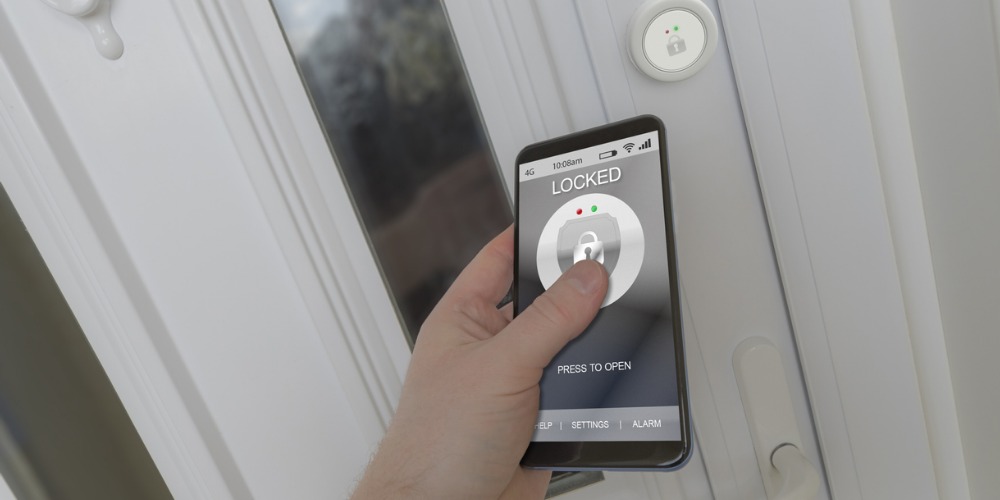During the summer, the amount of door-to-door salespeople that can be found in residential areas increases. Though many have good intentions, you can never be too careful when conversing with a stranger.
Keep the following in mind when a stranger comes knocking:
Potential Security Risks
The unpleasant truth is that some door-to-door salespeople are dishonest and may use the open door as an opportunity to cause you harm or scout your home for a future crime.
Security vendor scammers, in particular, have been popping up all over the country. Dressed in known alarm company’s or product manufacturer uniforms, they claim they are there to update billing or upgrade your system. Then, they trick you into switching security providers or take personal information. Don’t fall victim to these crimes; learn how to protect yourself from unscrupulous sales reps.
Before You Open the Door
Always employ extra caution when a stranger is at the door.
- Check through a peephole, window or your video feed to identify who is there.
- Ask for verbal confirmation of who they are and their motives for knocking.
- If a salesperson, have them hold their identification up to the peephole, window or camera.
In accordance with the Electronic Security Association (ESA) Code of Ethics, all salespeople are required to carry enhanced photo identification that states their employer. Scammers will be hard-pressed to obtain these identification badges. If the person fails to prevent proper identification, deny access and call the police immediately.
Furthermore, try to avoid opening the door when home alone, regardless of how compelling the offer. Rather, ask the salesperson to leave behind his or her business card or supplemental materials for you to follow up later.
If You Decide to Open the Door
If you decide to open the door, set the alarm and step outside. Never invite a stranger into your home. Keep the conversation in view of the street, and not obscured by trees or shrubbery. When speaking, allude to the fact that other people are in the home, whether this is true or not.
For many fraudulent door-to-door salespeople, the goal is to gain access to your financial records. Do not provide any personal information (i.e. credit card number, social security number or birthday) until you’ve verified the legitimacy of the individual. You can also say that the information is not readily available and you will follow up with his or her office later.
Make Your Home an Unfavorable Target
Take preventative actions to make your home an unfavorable target for imposter door-to-door salespeople and other strangers. Intruders will often avoid homes that have a visible home surveillance camera and are well lit.
Discuss ways you can further protect yourself with a home security vendor.
Image Source: Davi d Ohmer via Flickr



